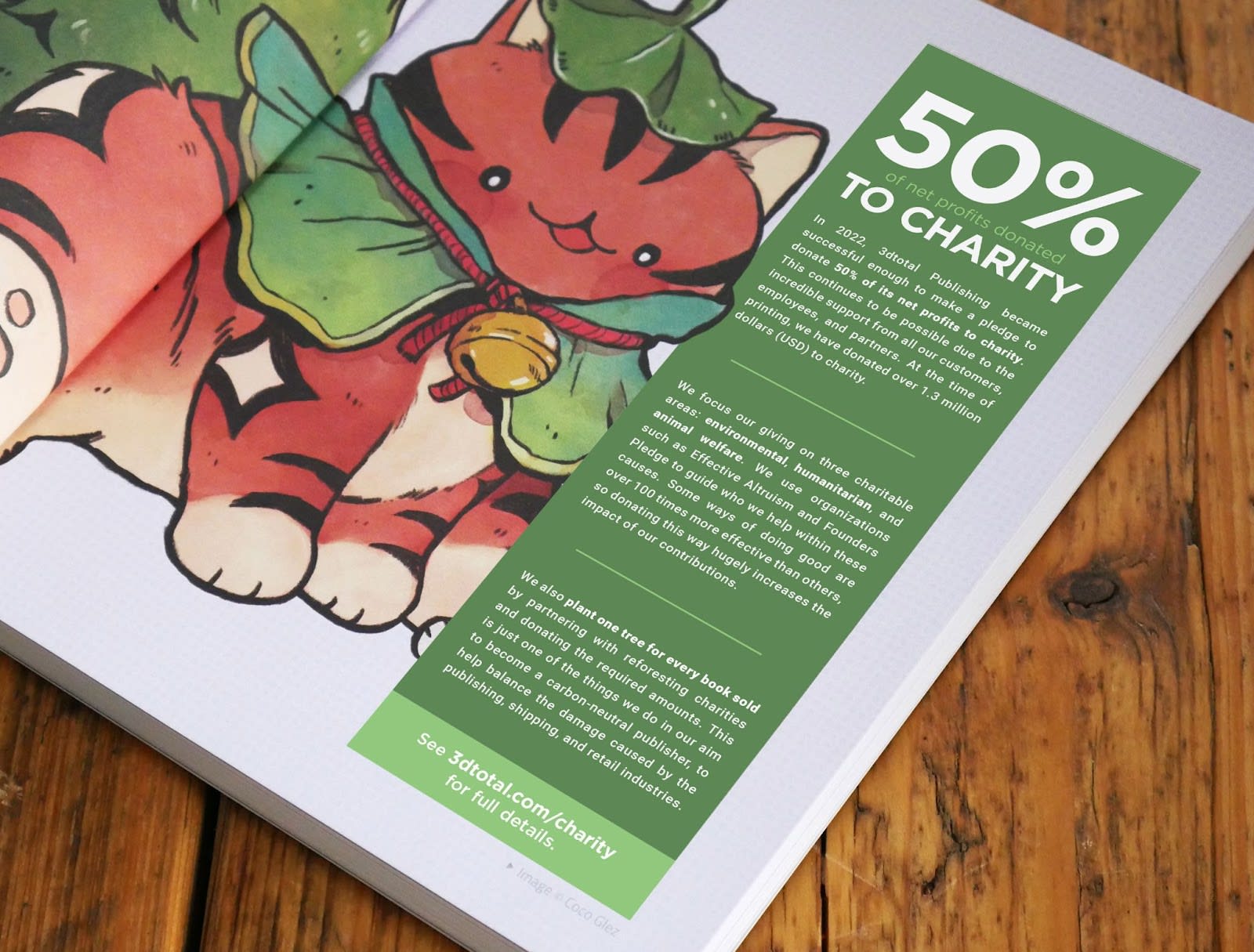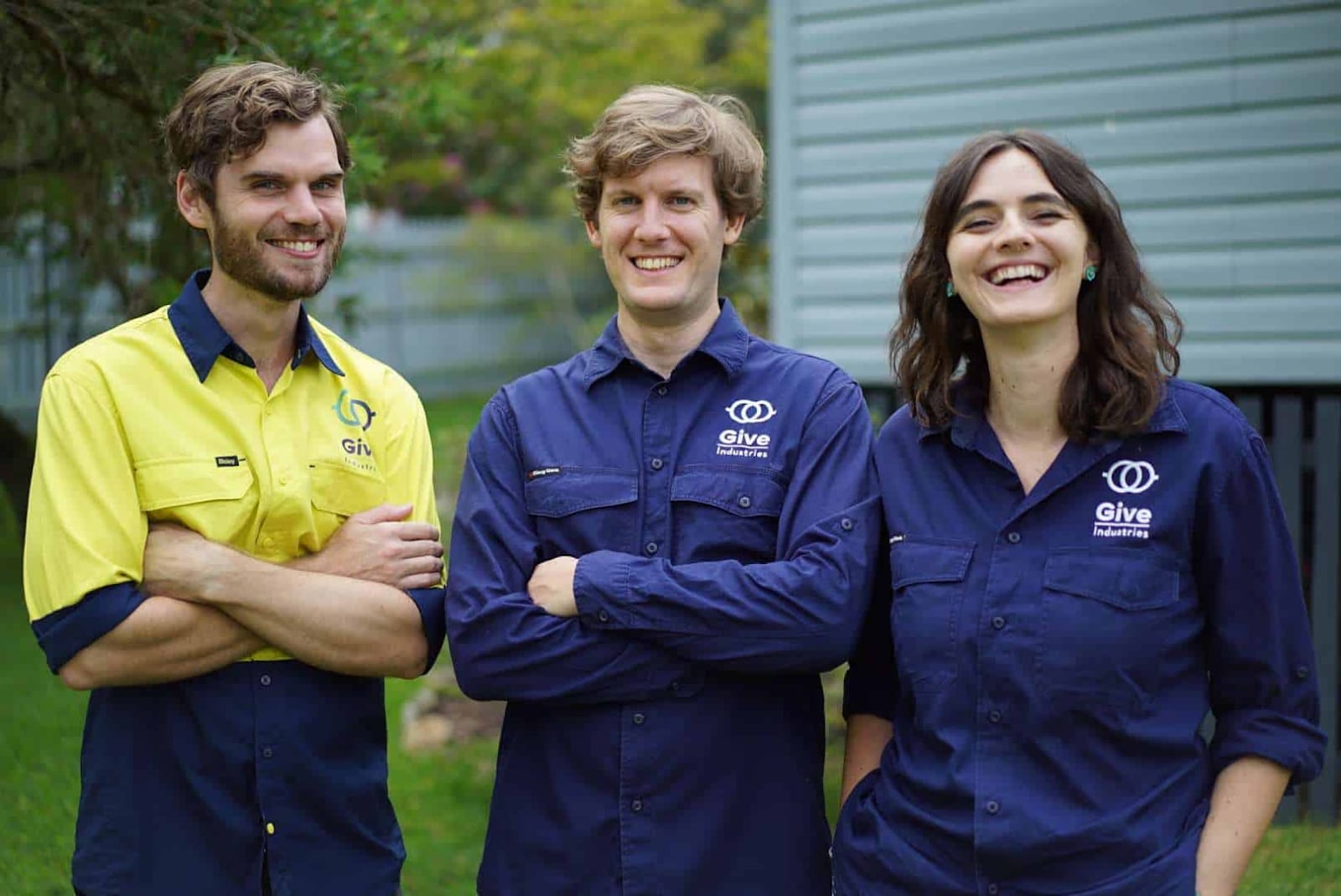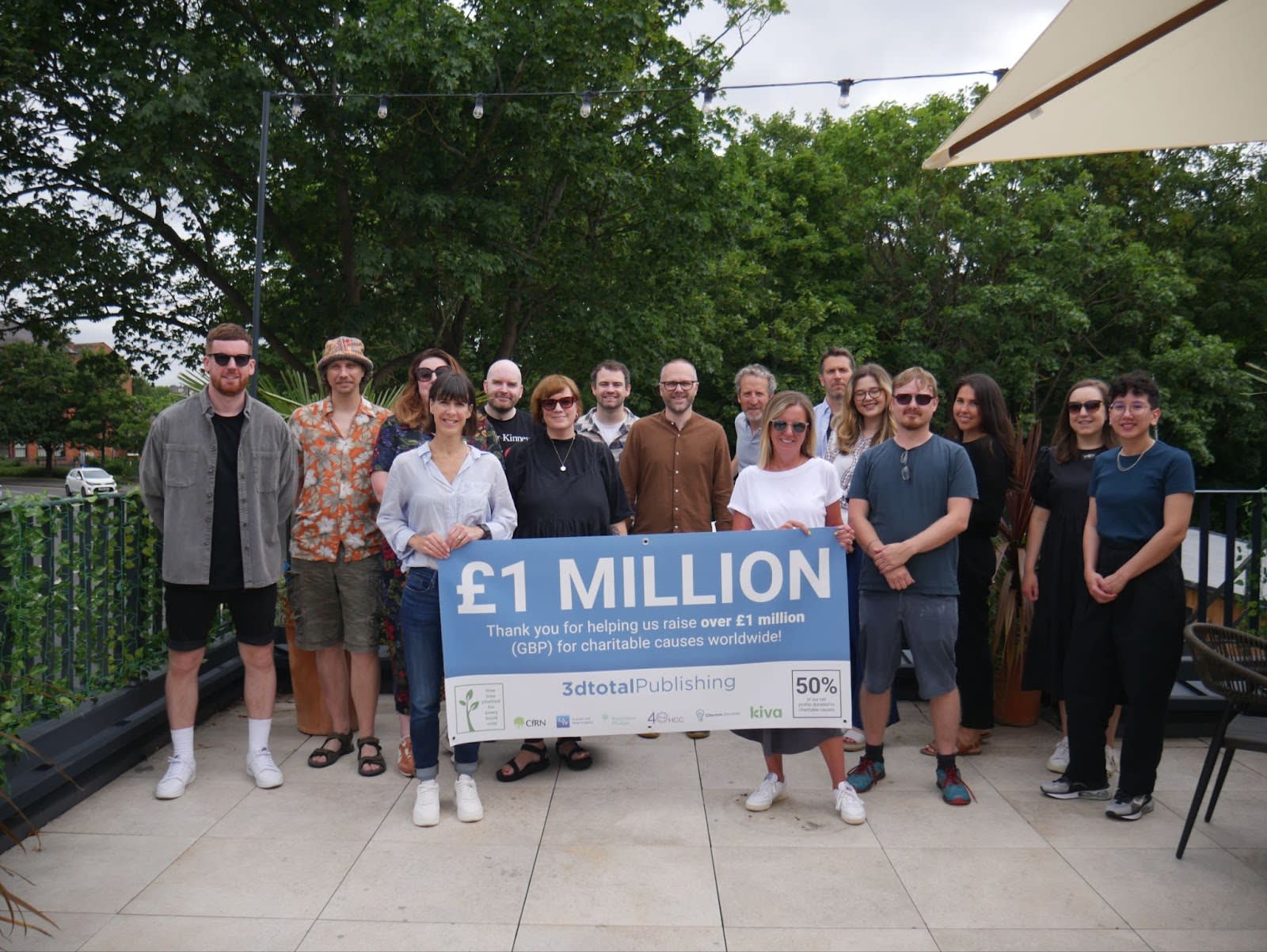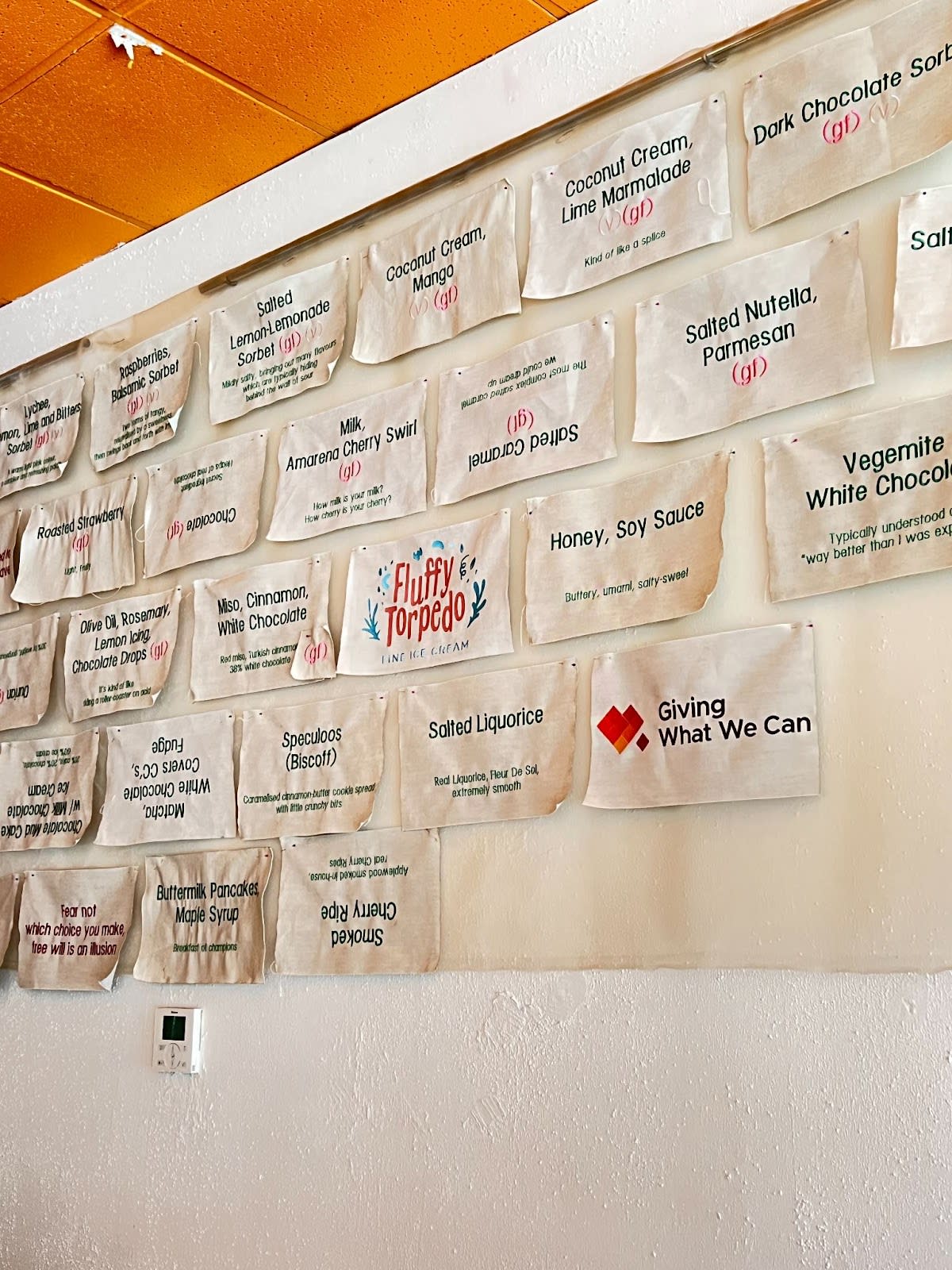Hello and welcome to our July newsletter!
There are some exciting things brewing at Giving What We Can, which I'll share in next month's newsletter, but this month I wanted to highlight some of our company pledgers, who are demonstrating that effective giving can take many forms!
We currently have over 40 companies who have pledged to give at least 10% of profits to high-impact charities… and here are a few of them:
3D Total has raised over £1 million for effective charities!
3D Total is an educational publishing company that sells around 250,000 books a year and they've been able to raise £1 million GBP for effective charities by donating 50% of their profits. They are also raising awareness about effective charities through messaging in the front of their books.
What an incredible effort from Tom Greenway and the team at 3D Total!


Give Industries, a registered non-profit in Australia provides commercial electrical services. Their organisation gives 100% of their profits to effective charities!
With five years in business, Give Industries has proven that this is a sustainable business model and is continuing to grow.
Fluffy Torpedo in Melbourne creates some of the most unique ice cream flavours (including a Honey & Soy Sauce flavour) and donates 50 cents per scoop to a high-impact charity.
Fluffy Torpedo is also spreading the word about effective charities in their store and provides copies of the book The Life You Can Save by Peter Singer for people to take home! (They even have our logo on the menu!)
I'm excited about businesses' ability to donate their profits to help others and advocate for a more generous society that seeks to make effective changes to some of our biggest problems.
Remember to check out why people pledged with Giving What We Can, upcoming events in London and New York, and lots of news below!
With gratitude,
- Grace Adams & the Giving What We Can team
Motivations for Pledging
I'm going to try a new section of the newsletter, where we share some of the responses we received from people who took a pledge during the previous month about what motivated them to take a pledge.
Reading these answers always fills me with hope and fulfilment, knowing that thousands of people are motivated to give significantly to help others.
What motivated you to take a pledge with Giving What We Can?
- "I believe in positive change caused by radical kindness. I am privileged and loved in my current position, and, because of that, I have enough to share. Thus, I will share it."
- "I have been given much, and so there is much to give."
- "I want to have the biggest possible impact that I can in the world, and this is something that I want to continue valuing for the rest of my life."
- "I believe the money I make can do far more good for others in desperate need than it could ever do for myself."
Upcoming Events
London Social Picnic
The picnic is open to anyone interested in GWWC, whether you have already signed a pledge or are simply curious about effective giving. Bring some food and maybe a blanket for a lovely social afternoon in the sun! (fingers crossed).
Date: Sunday, July 30th, from 12:30pm onwards
Location: Regents Park, London, UK
New York Community Picnic
Come picnic with the kindest, most interesting people in New York City at Giving What We Can's first meetup in 2 years! Meet us in Battery Park for some great conversation, some great nibbles, and a lovely summer evening.
This picnic is open to everyone interested in giving most effectively to help others, and we'd love you to bring a friend or two who would enjoy meeting like-minded New Yorkers.
Date: Tuesday, August 1st, from 6 pm-9 pm
Location: Battery Park, Manhattan, New York
News & Updates
Community
- A summary of a working paper from one of our co-founders, William MacAskill, provides some considerations for when an effective altruist should donate.
Evaluators, grantmakers and incubators
- GiveWell has published a blog post on its January 2023 grant to MiracleFeet, which helps health facilities find and treat clubfoot, a debilitating congenital condition. After adjustments, GiveWell estimates that this grant will lead to about 3,700 cases of clubfoot successfully treated that otherwise wouldn't have been, and that will result in lifelong mobility gains and pain relief for the children treated.
- GiveWell has published several new pages on grants it has recently recommended, including $6 million for Helen Keller International's support of vitamin A supplementation in Madagascar, $5.8 million to Sightsavers for its deworming program in the Democratic Republic of the Congo, and $1.4 million for core operating support to the Yale Research Initiative on Innovation and Scale (Y-RISE), which researches successful scaling of global health and well-being programs. If you'd like to sign up for email updates when new research materials from GiveWell are published, you can do so here.
- Animal Charity Evaluators announced their 2023 Movement Grants, which aim to "build and strengthen the global animal advocacy movement."
- Charity Entrepreneurship is now accepting applications to their 2024 Incubation Program! As in previous years, the program provides well-researched intervention ideas, 2-month cost-covered training, and funding up to $200,000.
- Open Philanthropy is hiring a Recruiter. This person will help hiring managers at Open Phil hire top talent as seamlessly as possible and maintain/improve internal hiring systems. If you know anyone that would be a good fit for this, please encourage them to apply! You can email Evan McVail (evan@openphilanthropy.org) with any questions or referrals.
- SoGive is conducting a survey of individuals giving £10,000+ per year or who might have the capacity to face uncertainties. They are seeking to understand this group's uncertainties around giving, what services would help these individuals donate more and better, and how they are making giving decisions. If you're in this category, they'd like to encourage you to book a 60-minute call with them. Your insights will be instrumental in helping them develop a program that A) will be of value to major donors and B) isn't already covered by other advisors in the space.
Cause areas
Animal welfare
- The Humane League UK has chosen to appeal the decision of the High Court in an ongoing case against the Government in which they are challenging the legality of fast-growing breeds of chickens. The High Court ruled in May that Defra hadn't behaved unlawfully.
- 96% of Co-op (a UK supermarket) members (over 32,000 people) voted for the supermarket to adopt the Better Chicken Commitment (BCC) following a shareholder resolution led by The Humane League UK. Whilst the board agreed to give chickens more space, they refused to stop selling fast-growing breeds of chickens. The Humane League UK plans to maintain pressure on the Co-op until they fully commit to the BCC.
- Tälist has created a new Impact Calculator that calculates the potential impact of working in the Alternative Protein industry. You can check it out now. They are also looking for pioneer users for their platform, which matches candidates with jobs in the Alt—protein industry. You can support their work by signing up and giving valuable feedback from a user perspective. Learn more here.
- Cultivated meat has continued to gain traction in the US and appeared in a CBS news segment this month.
- The Good Food Institute released its report: The State of Global Policy on Alternative Proteins for 2023.
Global health and development
- The Lead Exposure Elimination Project (LEEP) is hiring a Chief Operating Officer. The COO will be critical in helping LEEP dramatically widen its impact as it scales to 50 high-priority countries over the next few years. Read more about and apply for the position here.
- Helen Keller International shares how women are at the heart of their work.
Long-term future
- The Nuclear Threat Initiative highlights Oppenheimer and the risks of nuclear today.
- The impactmarkets.io platform is a crowdsourced charity evaluator for early-stage AI safety projects. It lets you play regrantor or harness the insight of expert regrantors. If you're interested in learning more, you can indicate your interest in using the platform to donate to these projects.
Have any feedback on our newsletter or communications? Share your thoughts here.
Useful Links
- Review our giving recommendations.
- Report your donations with your pledge dashboard.
- Share our ideas to help grow our community and multiply your impact.
- Join other members in the Giving What We Can Community Facebook group.
- Find more ways to get involved with Giving What We Can and effective altruism.
- Discuss effective giving on the Effective Altruism Forum.
You can follow us on Twitter, Facebook, LinkedIn, Instagram, YouTube, or TikTok and subscribe to the EA Newsletter for more news and articles.
Do you have questions about the pledge, Giving What We Can, or effective altruism in general? Check out our FAQ page, or contact us directly.


